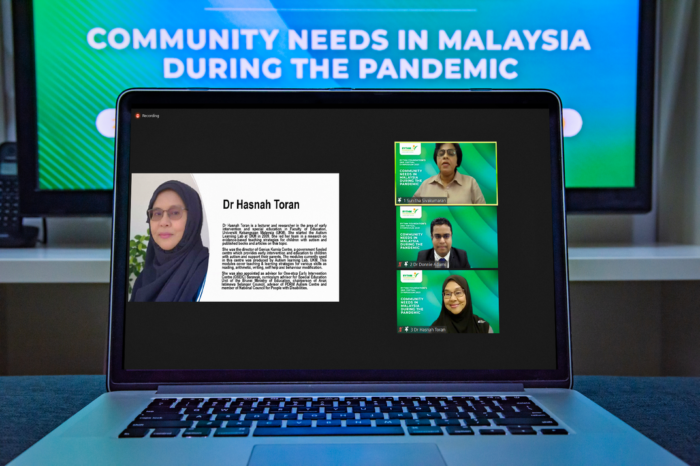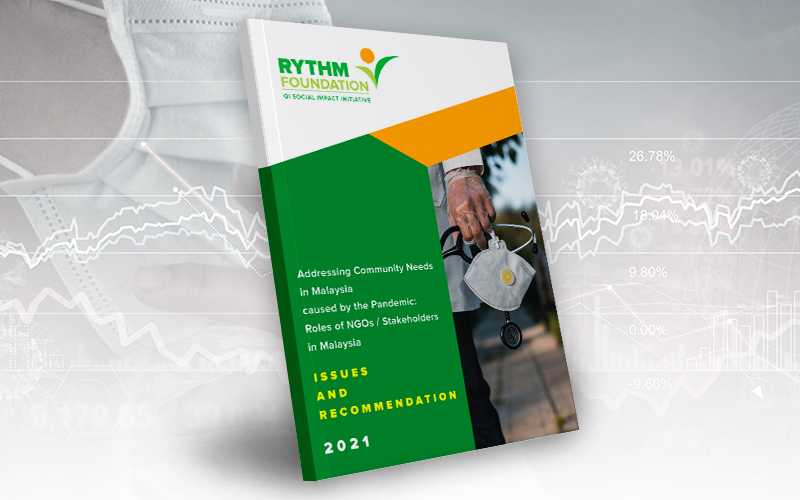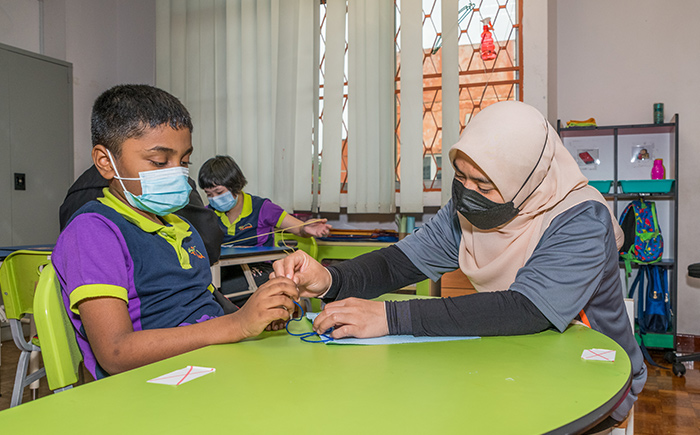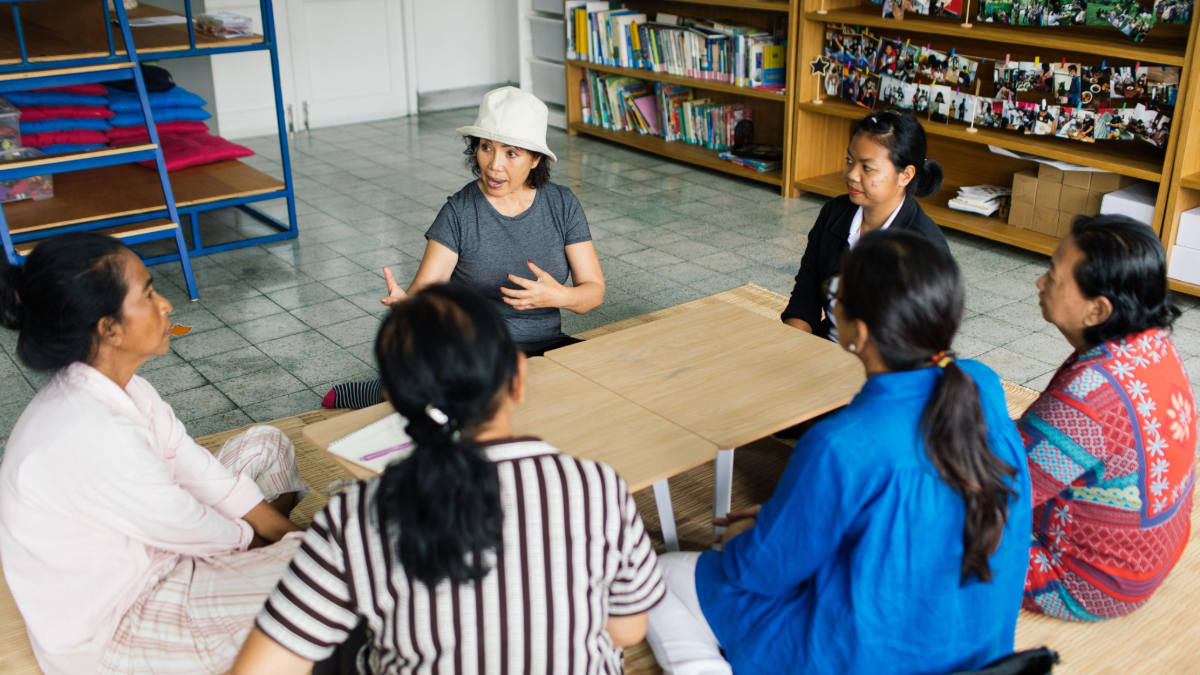The COVID-19 pandemic has changed the educational landscape globally, compelling educational institutions to adopt face-to-face teaching and learning alternatives.
However, while integrating information technology in educational institutions for typical needs students may be the new normal, there is no negating the fact that the shift to online teaching and learning poses numerous challenges for children with special needs.
At the pandemic’s height in 2020, the United Nations estimated that a billion persons with disabilities worldwide were among the hardest hit by COVID-19 and disproportionately impacted by the outbreak. Even before the pandemic, millions of learners with disabilities reportedly received inferior-quality education.
In Malaysia, the impact of COVID-19 on special needs education saw the closure of schools compounded by the associated health and economic crisis posing significant challenges to special needs students and their teachers. Moreover, switching to online classes has disrupted special needs children’s progress to a worrying degree.
Also read: Ensuring Financial Stability in The Battle Against COVID-19
The shortcomings, fragilities, risks, and inequalities in educating learners with disabilities were among the central issues deliberated during two symposiums on “Addressing Community Needs in Malaysia During the Pandemic” last February and September. The virtual conferences were organised by RYTHM Foundation, the social impact arm of QI Group.
The objective of the symposiums was to form a functional platform for representatives from different segments of society to share their insights from working on the ground with disadvantaged communities.
The meetings resulted in a Position Paper that details the framework and proposes medium- to long-term solutions to the Malaysian government. RYTHM hopes the government implements the recommendations in the 12th Malaysia Plan (2021-2025) to mitigate the impact of the pandemic on vulnerable groups.
Also read: Position Paper Addresses Pressing Pandemic Issues
Facing Virtual Learning Challenges
Teaching methods employed in place of in-person sessions for special needs children could deteriorate students’ academic performance and developmental skills, panellists deliberating on the issues warned.
The session’s key speakers, Universiti Malaya’s (UM) Dr Donnie Adams Paramasivam and University Kebangsaan Malaysia’s Associate Prof Dr Hasnah Toran, zoomed in on the challenges of online learning for special needs children, with emphasis on the cooperation between parents and teachers for students’ well-being.

“Previously, teachers could not influence what happens at home, and parents could not influence what happens in school. Now that there cannot be a division, there needs to be collaboration,” Dr Donnie said.
Dr Hasnah called for a comprehensive early intervention system. “Awareness about the science and characteristics of special needs education is essential, especially for parents,” she said.
Also read: RYTHM Foundation Holds 2nd Symposium to Shed Light on Urgent Needs of the Nation
The issues are undoubtedly familiar to RYTHM through Taarana School, a a centre for differently-abled children, operated by the Foundation.
Taarana’s Principal, Dr Sunitha Sivakumaran, said, “Within special education, each child ideally has an Individualised Learning Programme (IEP). “The IEP is a detailed plan developed to ensure that a child with an identified disability receives specialised instruction and related services to succeed in school.
“Face-to-face learning is the most effective method to implement the IEP. However, online learning restricts a child’s learning ability, namely, lack of supervision and support. These effects of remote learning are magnified in the case of children with special needs, as is the case for those with mental impairments.”
The position paper also highlighted inequality in education due to the pandemic. Online teaching and learning are only available to children with access to a broadband connection at home that is fast and stable enough to support such learning.
“In Malaysia, there are still geographical areas and population groups that are underserved, especially in rural and remote areas and among low-income groups. For example, fewer than half of rural households are in areas where fixed broadband at sufficient speeds is available.
“The current initiatives assume that children with special needs can learn effectively via distance learning. However, the government must consider the difficulties of learning at home for students with special needs,” Dr Sunitha added.
Other analyses have reached a similar outcome. In 2020, Malaysia’s Khazanah Research Institute paper on “COVID-19 and Unequal Learning” stated, “The current initiatives assume that children with special needs can learn as effectively via distance learning. The government must consider the difficulties of learning at home for students with special needs.”
Also read: RYTHM Foundation Conducts First Symposium with Malaysian Authorities, NGOs
Although Malaysia does not compare to many other advanced countries, there is room for advancement and improvement as with any ever-evolving society.
The position paper suggested several recommendations, key among which parents receive the appropriate support to ensure an effective way to provide adequate childcare and support to their school-going special needs children whilst meeting their professional obligations.
“For example, working parents unable to reconcile work and family obligations may be allowed to up to three months of paid leave, and be paid 80% of their earnings by the government.
“Easy access to counsellors and psychologist is also essential to provide families with guidance about social-emotional well-being.”
The report also emphasised improvements in supporting lower-income families to obtain learning aids like tablets and laptops, alongside better access to stable and high-speed broadband.
For the moment, as RYTHM continues to advance the importance of special needs education, a recent study commissioned by the Foundation revealed that Malaysian teachers are highly ready for inclusive education.
The concept integrates differently-abled children into regular classrooms, believing that students with disabilities are as fundamentally competent as their typically developed counterparts.
The study conducted by a UM research team between April and December 2021 aimed to uncover the on-the-ground reality of special needs education in Malaysia. In addition, it focused on gathering data to support creating a school-based programme as part of the Foundation’s aspirations to set up a world-class institution that caters to differently-abled children.
However, research lead Associate Prof Dr Rafidah Aga Mohd Jaladin said the teachers’ readiness varied significantly based on experience and exposure to training. Dr Rafidah, also director of the UM Family Research and Development Centre, said teachers with previous experience and training in special education had more confidence in managing inclusive classrooms.
The researchers surveyed 507 participants and interviewed 16 participants, including school administrators, teachers, parents, and NGOs, to identify exemplary practices for educating children with special needs.
Also read: RYTHM & UM Study Reveals Malaysian Teachers Readiness For Inclusive Education






